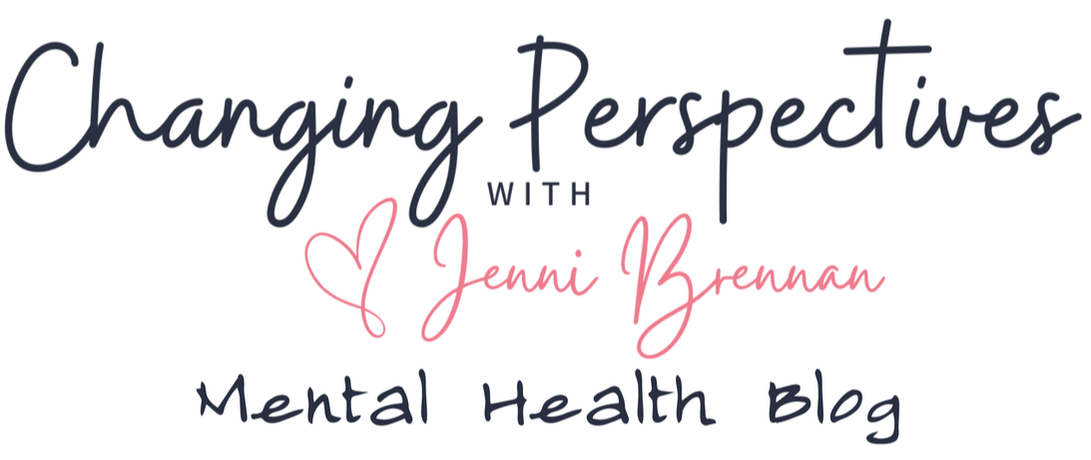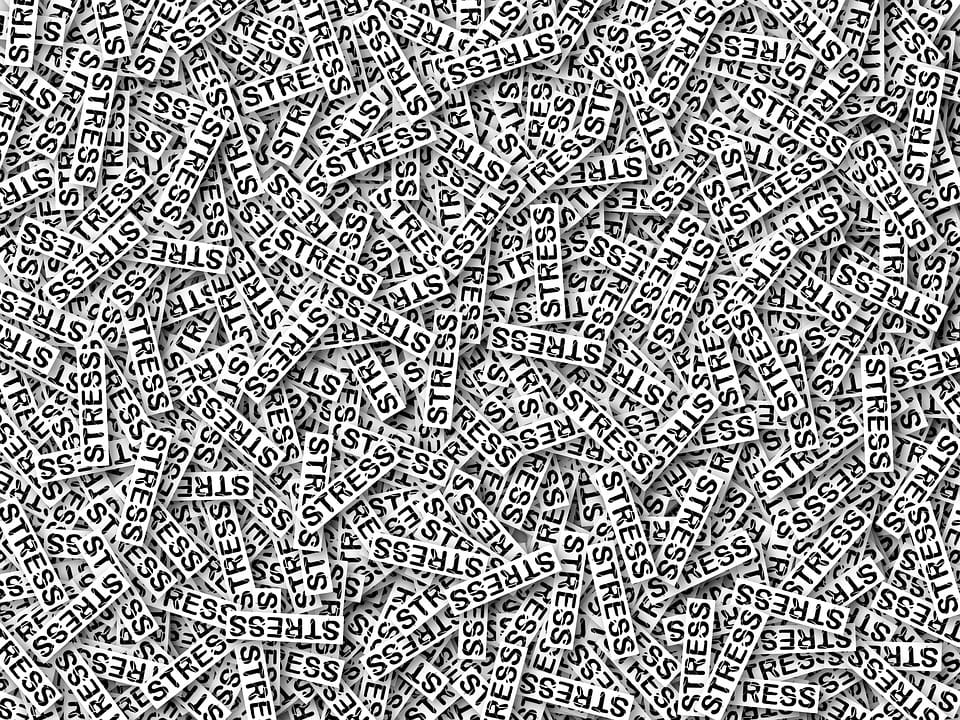|
Have you ever felt like you can’t catch your breath, are wound-up or on edge?
Have you ever felt like your mind is racing and you can’t keep up? Do your thoughts about what you have to do consume you? Have you ever laid in bed awake and unable to fall asleep because you have so much on your mind? Have you ever realized that your shoulders and neck are so tense that they become painful? Have you ever felt like there is an elephant sitting on your chest making it difficult to breathe? Have you ever wanted to lock yourself in a room and hide from all the things that you have to do? Welcome to anxiety. It sucks. There is some good news, though. You are not alone. Over 40 million adults in the US report some level of anxiety. That’s 18% of the population. For over 4% of those individuals, their anxiety is severe (National Institute of Mental Health, 2016). Think about those numbers and then think about your life. Chances are that nearly 20% of the adults in your life have dealt or are currently dealing with anxiety issues. That’s 1 out of every 5 people you know. Yet, for so many people, anxiety is a shameful secret they struggle to hide. When your anxiety rears its ugly head, you might find yourself thinking things like “What’s wrong with me?” “Why can’t I just stop worrying?” “Why can’t I just be grateful for all the good things in my life?” You might find that you are starting to turn to some unhealthy coping tools such as cigarettes, alcohol, drugs and food. You might find that your anxiety is causing you to miss work, cancel social activities or even starting to impact your physical health. It’s time to tell anxiety who is the boss in your life. It’s time to tell anxiety to hit the road. It’s time to take control of your thoughts and your mind. You deserve it. And I have a magical solution. Wouldn’t that be nice? Unfortunately, there is no magical solution. It’s entirely possible that your good friend anxiety will stay will you forever. (Wow. This article is turning out to be super motivational and inspiring so far.) The good news is that you CAN learn some ways to manage your anxiety. Anxiety is not something you can beat forever. It is a part of you and is probably part of what makes you, YOU. At some point in your life, your anxiety may have even helped you! However, it does not need to control you or define you. So, let’s look at some ways to manage this beast called anxiety and prevent it from taking over our lives: 1. Let Go of Perfection Many people with anxiety have a belief that they need to be perfect. The perfect mother. The perfect friend. The perfect neighbor. The perfect employee. To you, a messy house is an indication of failure; a child with hair that is a bit overdue for a haircut means that you are a neglectful parent; leaving your trash barrels out until 6pm means that you are the worst neighbor ever; being 10 pounds overweight means that you are disgusting; asking your friend for help means that you are too needy. Stop. None of that is true. Your thoughts can become your own worst enemy. Stop trying to prove your worth. Stop trying to live up to people in your life that you think are perfect. Stop trying to be the best. Honestly, stop. What would happen if you tried to just do the best you can do right now? Maybe your best today is to feed your kids mac and cheese for dinner. Does that mean you are the worst mother? No. Maybe your best today is to throw your dirty clothes in the hamper rather than on the floor. Does that mean you are a lazy slob? No. Maybe tomorrow you can do more. Maybe not. Don’t beat yourself up. Cut “I should” out of your vocabulary. Accept yourself for who you are right now and focus on the good, not the bad 2. Rethink Social Media A quick word on all those perfect people on social media: most of them are fake. Their pictures were posed and reposed, edited and re-edited. Their posts have been rewritten and reworded. Their videos have been cut and redone. What you are seeing is the best version of them, not the real version. Resist the temptation to compare yourself. If there are people on your social media accounts who always seem to have it together and you find that their posts somehow leave you feeling worse about yourself, try hiding their posts for a bit. It’s ok to take a break. They don’t even need to know. 3. Make Room for Self Care In my experience, many of the people who struggle with anxiety are really wonderful caregivers – except when it comes to caring for themselves. They place everyone else’s needs above their own and by the end of the day, there is nothing left for them. That kind of behavior needs to stop if you are ever going to manage your anxiety. What are some things that make you feel good? Is it 15 minutes drinking coffee by yourself in the morning - no phone, no tv, no other people? Is it a long bath at the end of the day? Is it one night out a week with a friend? Is it some time with a good book at night for 20 minutes? Is it scrapbooking or photography or writing? What is it that fills you up a little bit? Once you figure out what it is, schedule some time, preferably daily, for that self care activity. Even 5 minutes each day would be wonderful! Hold that time sacred. Block it out and schedule things around it. Don’t allow yourself to feel badly about it. Self care is not selfish. 4. Relax A large part of learning to manage your anxiety is learning how to calm and quiet your thoughts. Many people have found activities such as yoga, meditation and mindfulness training to be effective at increasing their ability to quiet their mind. It’s not easy. You will likely find your first 5 sessions of yoga, meditation or mindfulness work will leave you feeling even more anxious because you will suddenly be extremely aware of just how fast your thoughts are moving. Stick with it. It will become easier and, with practice, you will be able to sit in silence without your mind racing. These are wonderful tools to have in your toolkit. 5. Get Moving Physical exercise can be extremely beneficial for those with anxiety. Exercise can be something as simple as a 10 minute walk each morning. Go at it with the goal of increasing physical activity and decreasing your anxiety. Resist the urge to set sizeable goals for yourself with regards to weight loss. You want to avoid opportunities for causing more anxiety in your life. Set yourself up for success. 6. Breathe So, what do you do when anxiety hits you full force and you can’t catch your breath? Being able to get control of your breathing again is key. There are two main techniques that I like to recommend to patients:
7. Watch Your Diet Take a few days and track everything you eat and drink. Also track any times of day where you may be feeling more anxious. Look for patterns. Caffeine can sometimes heighten your symptoms of anxiety. Perhaps it would be worthwhile for you to slowly decrease your caffeine consumption and/or limit your intake of sugar. Small and steady changes can make a big change over time. 8. Find a Counselor Perhaps I am biased because I am a counselor, but I tend to believe that everyone can benefit from a counselor or psychotherapist. I recently talked to someone who was hesitant to contact a counselor because they didn’t exactly know how to explain their concerns to the therapist. Don’t worry. A good therapist will help you articulate and identify your concerns and needs. They also can help you learn new coping and calming strategies and skills, can assist you with areas of stress in your life and can help you increase your overall quality of life. Not sure where to find a good therapist? Talk to your friends. They may be able to recommend a great one. You can also check out your health insurance company’s list of approved behavioral health providers. Psychology Today has a great searchable database of clinicians as well. What if you see a therapist and don’t feel like you connect with them? Find another one! This is about you – not the therapist’s feelings. 9. Be Open to Medication I am not one to advocate skipping all of the previous steps and going straight to medication. However, panic attacks and chronic severe anxiety can feel terrifying. There are many medication options available today to help manage anxiety. These medications can be taken daily or taken as needed. Some of you may be thinking, “I don’t want to be snowed.” Or “I don’t want a tranquilizer.” Fear not. Medications are much more refined today than they were decades ago. If you feel you may want to explore medications for your anxiety, speak to your primary care physician or schedule a consult with a psychiatrist. (In general, I find that a psychiatrist tends to be a better option over a primary care physician for medications for depression and anxiety – it’s their specialty.) 10. Be Kind to Yourself This mantra seems to find its way into many of my articles. I cannot stress this concept enough to you. Be kind to yourself. Forgive yourself. Accept that you are not perfect. Accept that you are flawed. Accept that you are human. Surround yourself with people who allow you to be kind to yourself. Better yet, surround yourself with people who encourage you to be kind to yourself. With anxiety, some days are harder than others. In fact, some days just feel damn near impossible. Know that those days will pass and know that there are resources, supports and tools available to help you manage your anxiety. You don't have to fight this battle alone! References National Institute of Mental Health. Any anxiety disorder among adults. (n.d.) Retrieved December 29, 2016 from https://www.nimh.nih.gov/health/statistics/prevalence/any-anxiety-disorder-among-adults.shtml
1 Comment
|
Mental healthNow, more than ever, we all need a little support to help get us through the rough spots. With all the pressures of life, it can be a challenge to find time to not only take care of yourself but also to truly understand who you even are anymore. Archives
July 2023
Categories
All
|
Sign Up For the Changing Perspectives Newsletter
Changing Perspectives with Jenni Brennan is supported by its audience.
When you purchase through links on this site, an affiliate commission may be earned. Learn More.
When you purchase through links on this site, an affiliate commission may be earned. Learn More.
Changing Perspectives Copyright © 2023


 RSS Feed
RSS Feed
